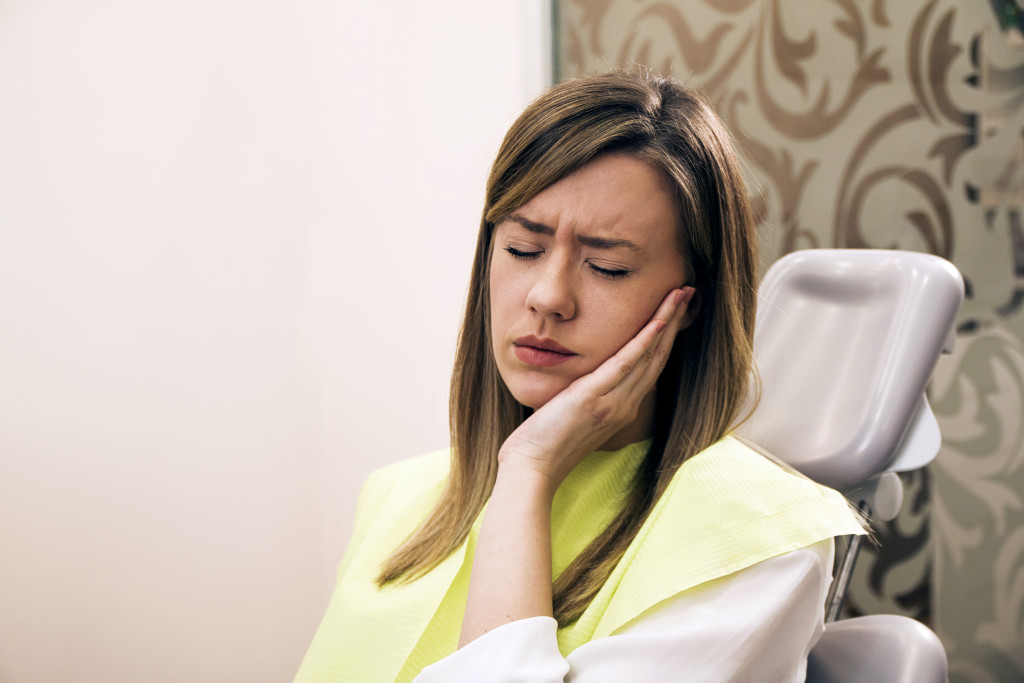Imagine waking up early in the morning, yawning, and feeling pain inside your mouth. You were fine the day before. What could possibly result to this?
You and millions of Americans experience unexplained orofacial pain. It’s a kind of pain that you feel in your mouth, teeth, gums, lips, or jaw. Orofacial pain is different from the dull ache of a toothache. Instead, it’s more like a sharp, shooting pain. The pain may come and go, or it may be constant.
The exact cause of orofacial pain is often unknown. But here are five reasons that can explain it.
Infection
Infection is explained as an invasion of germs that cause illness or disease. There are different types of infection, including bacterial, viral, and fungal infections. Oftentimes, infections can happen without severe symptoms, at least in the first few days of the infection. It could be happening inside your mouth, and you wouldn’t notice it.
In some situations, your body can solve the infection without it ever showing any symptoms. This is common for many bacterial and viral infections you’ve already been vaccinated for. However, when the disease worsens, it can lead to pain inside your mouth and all over your face.
The common symptoms of infection include inflammation which can cause pain, swelling, and redness. If you’re experiencing these symptoms, it’s best to seek medical attention as soon as possible.
Tooth Decay
Tooth decay is the deterioration of your tooth enamel caused by acids. The enamel is the hard outer layer that protects your teeth from everyday wear and tear. When it’s damaged, it can cause severe tooth pain.
Many things can damage your tooth enamel, including sugary drinks, acidic fruits, and not brushing your teeth regularly. Once the enamel is gone, it cannot be replaced. That’s why taking care of your teeth and seeing a dentist regularly is essential.
If you think you have tooth decay, it’s essential to see a dentist as soon as possible. They can diagnose the problem and recommend the best course of treatment.

Impacted Teeth
Impacted teeth are usually the result of overcrowding in the mouth. When there’s not enough room for all teeth, they can become trapped or wedged between other teeth. This can cause pain, inflammation, and damage to the surrounding teeth.
Impacted teeth are more common than you might think. About one-third of people have at least one impacted tooth. The most common type of impacted tooth is wisdom teeth, which are the back molars that usually come in during late adolescence or early adulthood. Getting your wisdom tooth removed is the best treatment of action for this kind of pain.If you don’t get it removed, it can cause further pain and damage to the surrounding teeth and gums.
Gum Disease
Gum disease is an infection of the gums that can cause pain, swelling, and bleeding. It’s caused by plaque, a sticky film of bacteria that forms on your teeth. If plaque isn’t removed, it can harden and turn into tartar. Tartar can irritate your gums and lead to gum disease.
Gum disease is usually painless in the early stages. But as it worsens, you may experience soreness, redness, and bleeding when you brush or floss your teeth. Various home remedies can help treat gum disease, such as brushing and flossing regularly, using an antibacterial mouthwash, and avoiding sugary foods.
Cancer
Cancer is the growth of abnormal cells that can occur anywhere in the body. Oral cancer usually starts in the tongue or the floor of the mouth. It can also affect the gums, lips, and cheeks.
Oral cancer is usually painless in the early stages. But as it grows, it can cause a sore throat, trouble swallowing, and ear pain. It’s vital to get cancer diagnosed first before getting any treatment, so visit a doctor or dentist if you notice any changes in your mouth.
Temporomandibular Joint Disorder (TMJ)
The temporomandibular joint is the hinge that connects your jaw to your skull. TMJ disorder is a condition that causes pain and dysfunction in this joint.
TMJ disorder can cause a clicking or popping sound when you move your jaw, as well as pain and tenderness in the jaw, neck, and shoulders. It can also cause headaches and ear pain. In addition, it’s one of the main reasons for chronic orofacial pain.
There are many things that can trigger TMJ disorder, such as stress, teeth grinding, and misalignment of the teeth. Treatment typically involves managing the symptoms with over-the-counter medication or physical therapy. In severe cases, surgery may be necessary.
Though it is not exhaustive, this overview of some common reasons for orofacial pain and its symptoms should help you be better aware of what to watch out for. If you are experiencing any of these symptoms, it’s best to seek medical attention as soon as possible.


